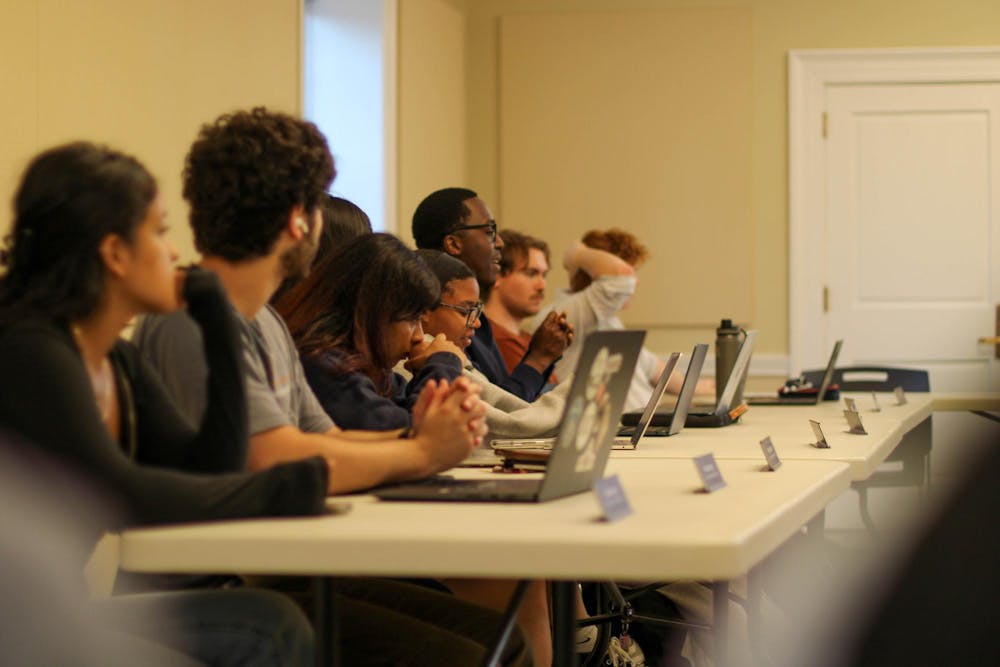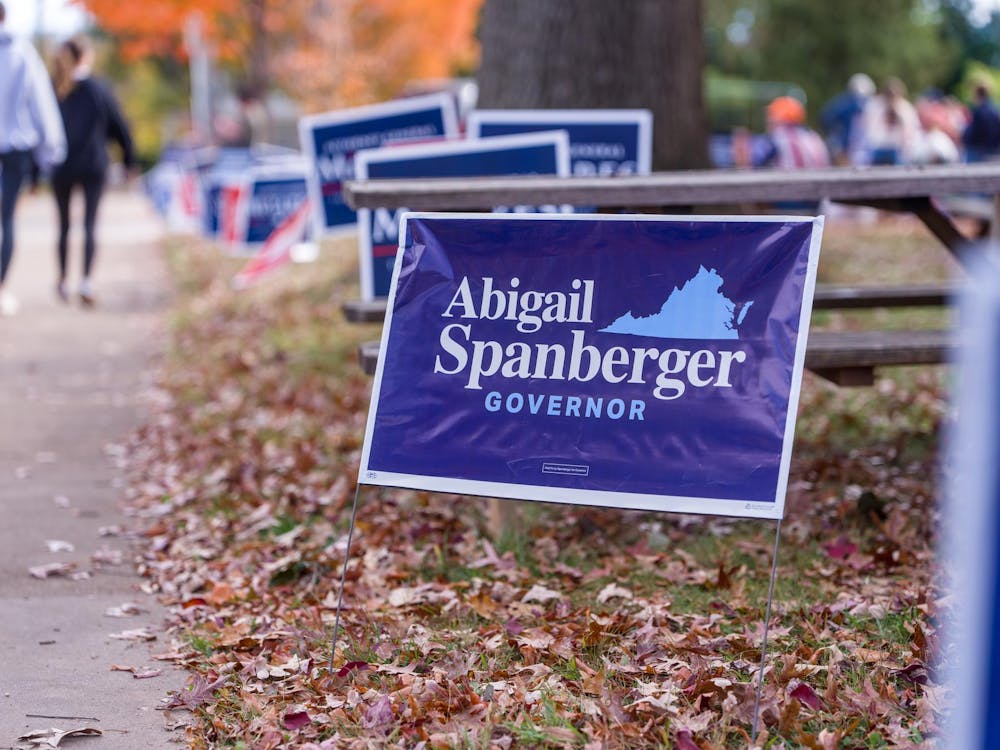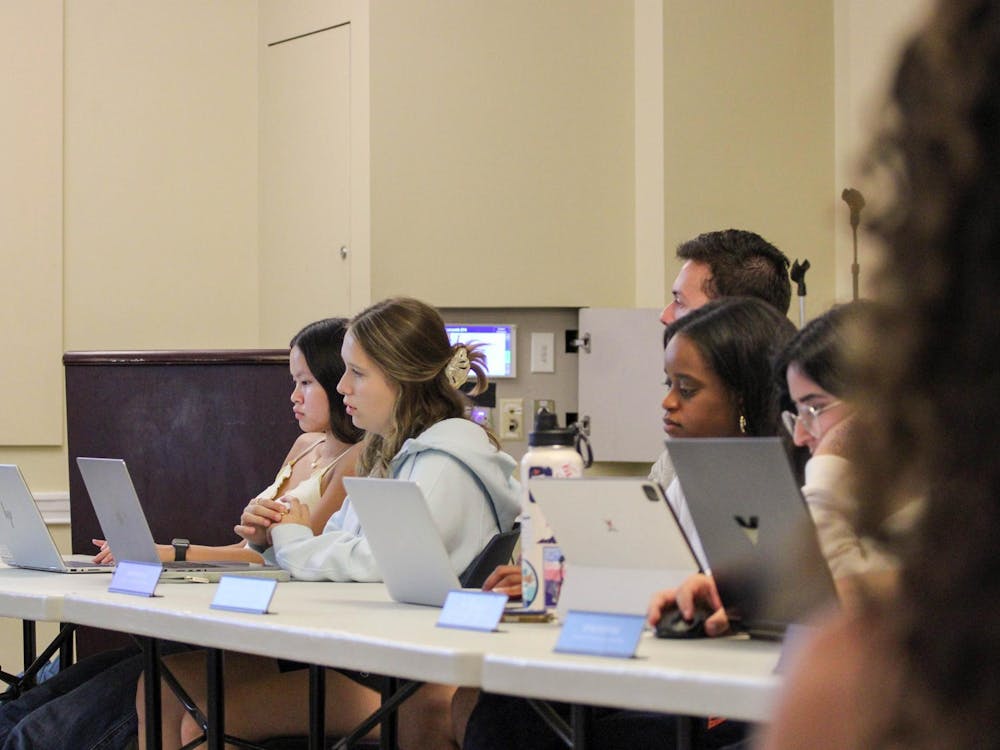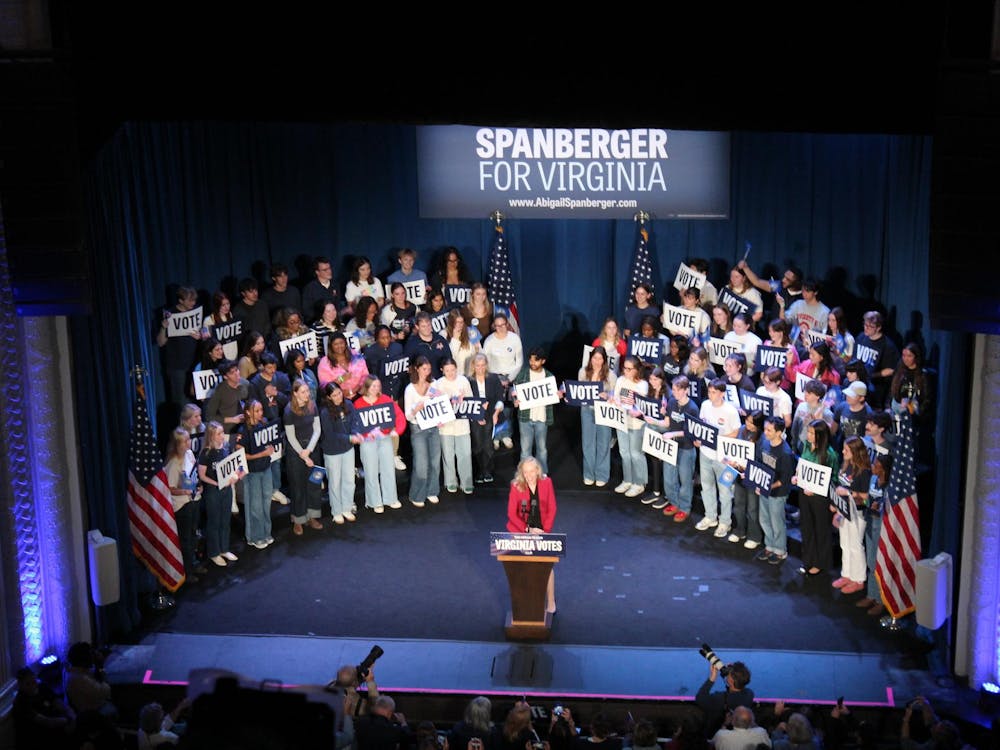Katrina Sadoudi, University Student Legal Services intern and third-year College student, spoke to Student Council during Tuesday’s general body meeting regarding her wish to open an overnight intoxication center to address student public intoxication arrests and to bring more restorative justice to the Charlottesville community.
Student Council representatives also unanimously passed four pieces of legislation including codifying Cavalier Health, increasing the Student Activities Fund and reopening Clemons Library 24 hours per day. The first two resolutions were tabled at the general body meeting Sept. 16 to be put up for vote Tuesday.
Sadoudi spoke to Student Council during the public comment section of Tuesday’s meeting — a portion of time in which any University member can register online to speak for two minutes about any topic of choice. Sadoudi addressed the process in which public intoxication arrests are handled in Charlottesville.
Public intoxication in Virginia is a Class 4 misdemeanor that stays permanently on a criminal record. However, the code of Virginia states a person publicly intoxicated can be brought to a court-approved detoxification center in lieu of arrest, provided that there is a center in the area.
According to Sadoudi, Charlottesville does not currently have a detoxification center but she said she wanted to begin a discussion with Student Council regarding a possibility of opening one. In the center, Sadoudi said students could sober up under medical supervision rather than get a mark on their criminal record.
“The goal is to shift this from a criminal issue to a public health issue,” Sadoudi said.
Sadoudi’s discussion follows a visit made to Student Council by SLS Attorney Teresa Hepler in January, during which she said a public intoxication arrest can be traumatizing for many younger University students who are still learning their own tolerance.
Ian Travis, College representative and third-year College student, was in support of Sadoudi’s idea to open a public detoxification center but brought up a concern regarding who the center would be open to — namely, the homeless population.
“My only fear is there's a large homeless problem in Charlottesville,” Travis said. “[The center] might get filled up [by non-students], and our money might not be going to what we're trying to do.”
Sadoudi confirmed that Hepler is hoping this detoxification center is for University students and staff, though SLS is not yet sure of the exact logistics as to how they will ensure law enforcement are only bringing University-affiliates to stay there.
Sadoudi said the idea of restorative justice is important to her — she said it is an approach that focuses on repairing relationships and teaching accountability. Sadoudi said she wants to bring restorative justice into the Charlottesville community via University resources.
“Growing up, I would watch friends get written off way too early,” Sadoudi said. “I've seen how a detention slip can become a criminal record — and how that record can change their life … and we know that restorative approaches can change that trajectory.”
Just like the detoxification center idea, Sadoudi said she does not yet have all logistics figured out. However, she identified her goals to include bringing University students into local schools and after-school programs to drive restorative justice into the Charlottesville youth population.
Lily Dorathy, Student Council director of coalition engagement and fourth-year Batten and College student, agreed with Sadoudi’s idea and noted she feels similarly that University resources can be better integrated into the greater Charlottesville region.
“U.Va. has so many resources … that [don’t] always ripple into the surrounding community,” Dorathy said. “I really wanted to thank you for creating [this idea].”
Following Sadoudi’s public comments, legislative session began and Student Council representatives unanimously approved four pieces of legislation. The first officially codified Cavalier Health into the SAS branch of Student Council, which according to Micah Andrews, Student Council chief of support and access services and third-year College student, will house all of the Student Council’s health and wellness initiatives under one branch. Cavalier Health will encompass the Accommodations Access Fund, Next Steps Fund, STI testing and dental insurance.
Clay Dickerson, Student Council president and fourth-year College student, said Cavalier Health is a more cohesive way to organize the safety and wellness initiatives of Student Council.
"We're trying to just centralize our partnerships with [SHW], so that people think we're more efficient and productive,” Dickerson said.
The second piece of legislation approved a $4 increase to the Student Activities Fee — a mandatory fee all students pay with tuition — for the 2026-27 academic year.
Michael Mitchell, Student Council vice president for organizations and third-year Commerce student, sponsored the resolution to increase the SAF to bring the fee to $62. This resolution was also tabled Sept. 16, and during that meeting, Mitchell said the SAF fee is put towards funding and providing resources for Contracted Independent Organizations. Mitchell echoed what he said during his SAF raise presentation Sept. 16 and said the raise would be “incredible” for student organizations.
“I cannot stress that enough — if you're a member of a club, if you're [executive] of a club, if you ever request funding, you know how far this money goes,” Mitchell said. “So again, I ask that you really consider this.”
Student Council representatives approved the SAF raise and according to the bylaws, the raise will be moved to the Board of Visitors for an official approval or denial.
Another resolution called for the University to reopen Clemons Library for 24 hours per day, regarding a recent change to close Clemons at 2 a.m. on weekdays.
Travis sponsored the resolution to reinstate Clemons Library’s old hours. Travis said he did research and found there are only two other major flagship universities in America to not have 24-hour access — the University of California system and the University of Maryland.
“We do not want to join that exclusive club of slacking universities,” Travis said.
Travis also emphasized that Clemons is a central location for many students, and one of the only other 24-hour study spaces on Grounds is located in Gaston House, which is far from students living in North Grounds. Representatives were in support of this resolution, and many agreed that having Clemons open 24 hours is essential. They passed the resolution unanimously to move to the Board.
Finally, directors were appointed to the SAS branch of Student Council for the 2025-26 academic year. This resolution was sponsored by Dickerson and on behalf of Andrews.
Directors were approved for Cavalier Health, Airbus, Student Legal Services and the Textbook Access Office, and they will work together to provide a variety of low-cost, accessible services to students. The eight directors of SAS can be found here.
Student Council will reconvene Tuesday at 6:30 p.m. for a regularly scheduled general body meeting.







